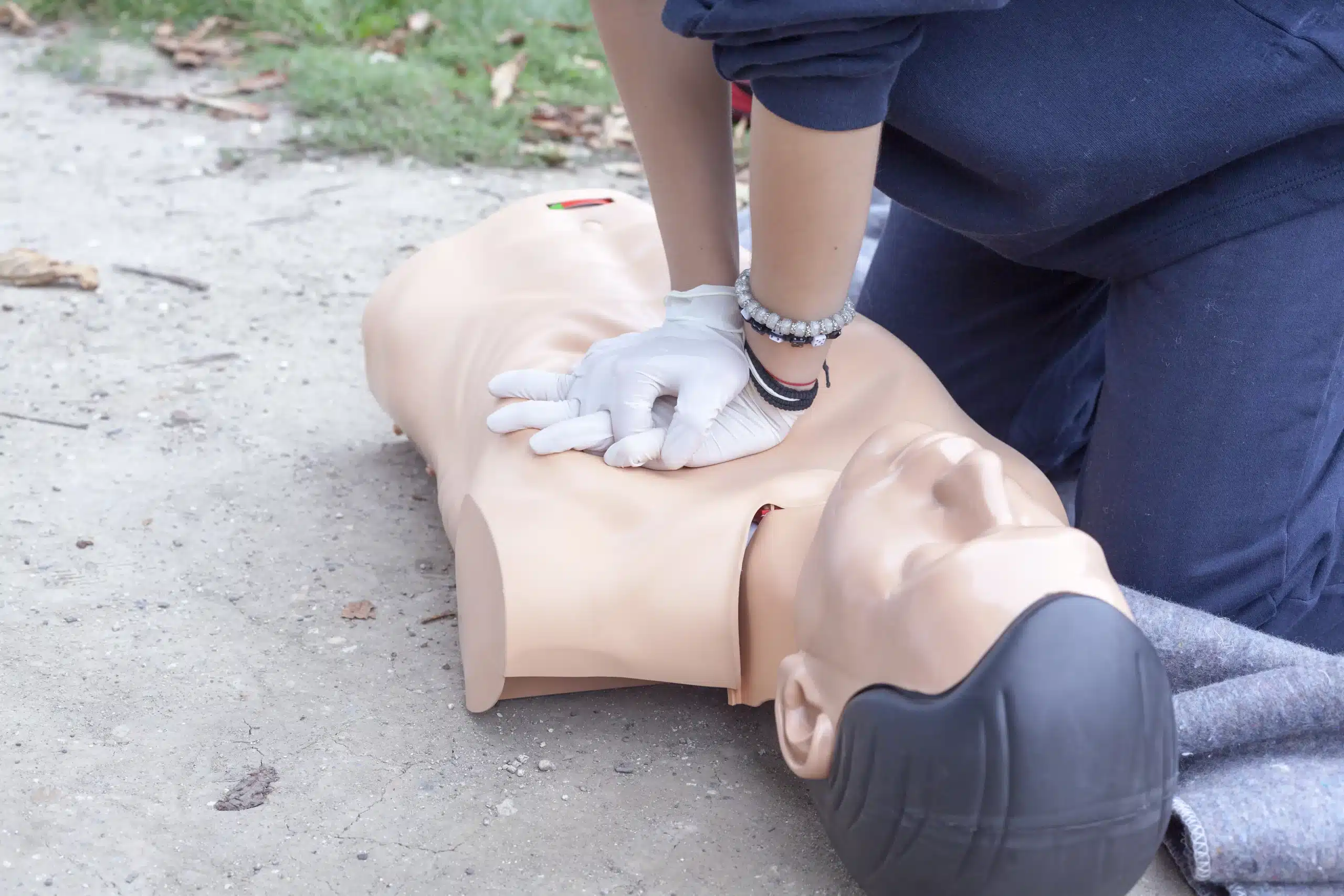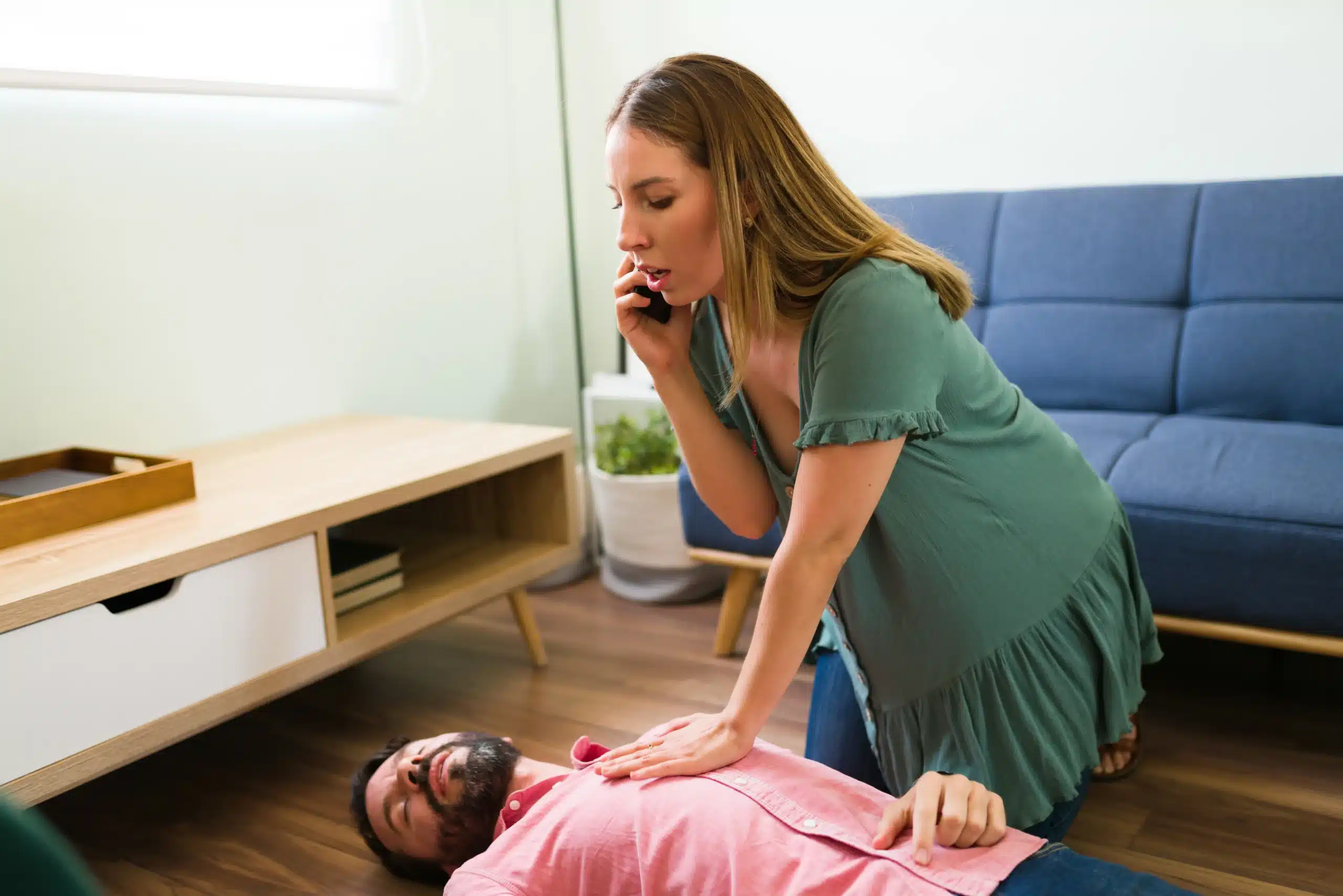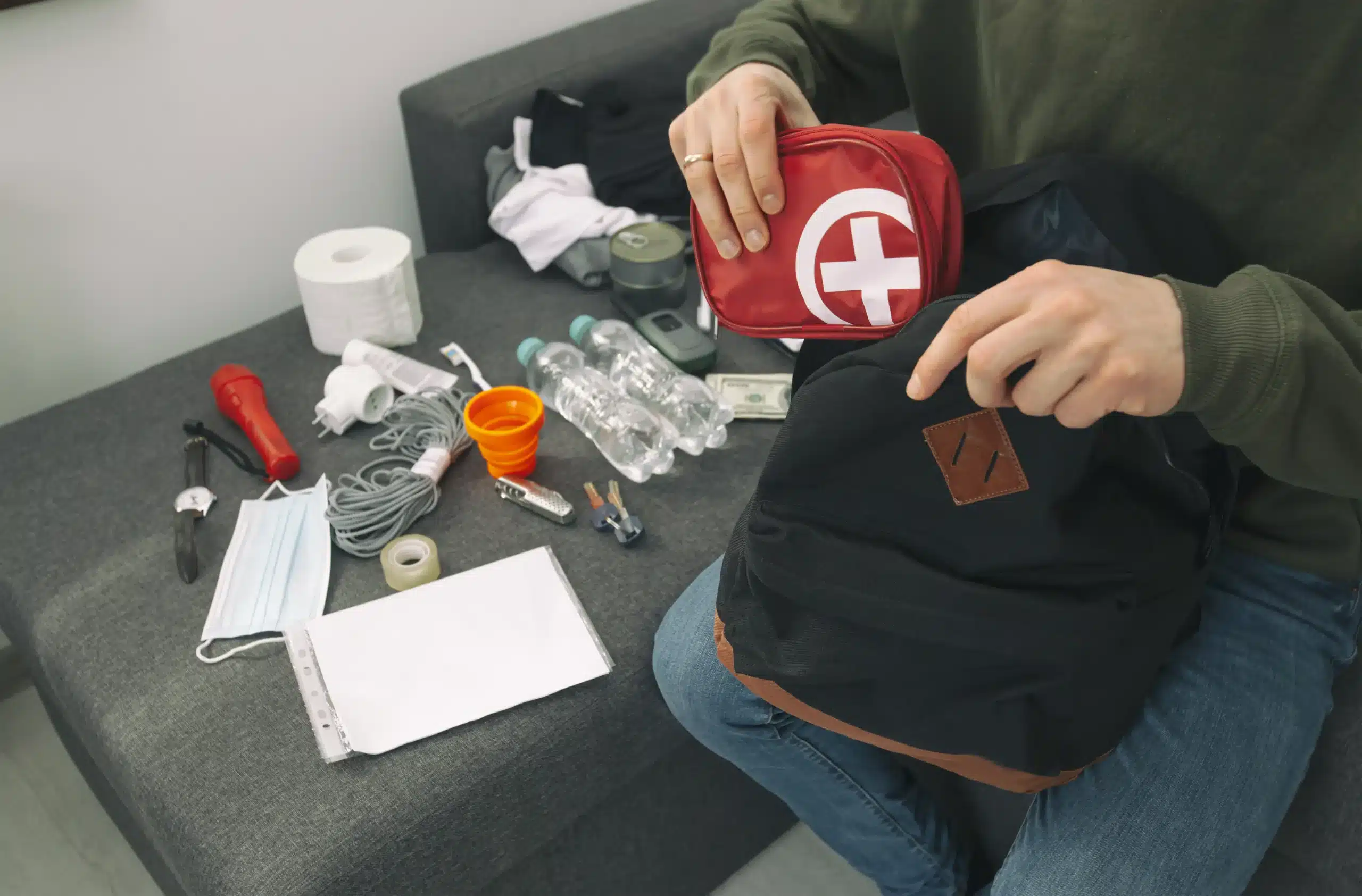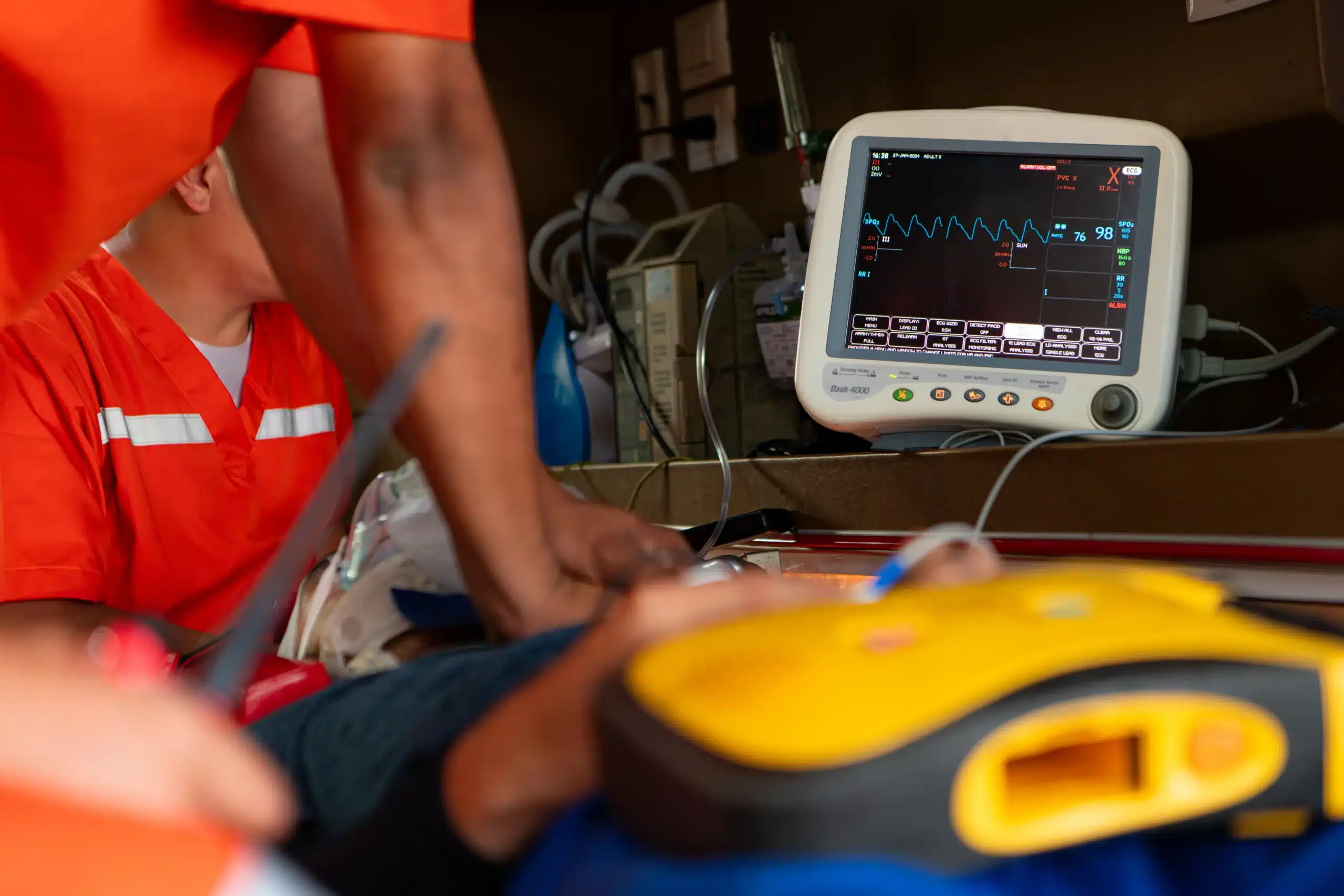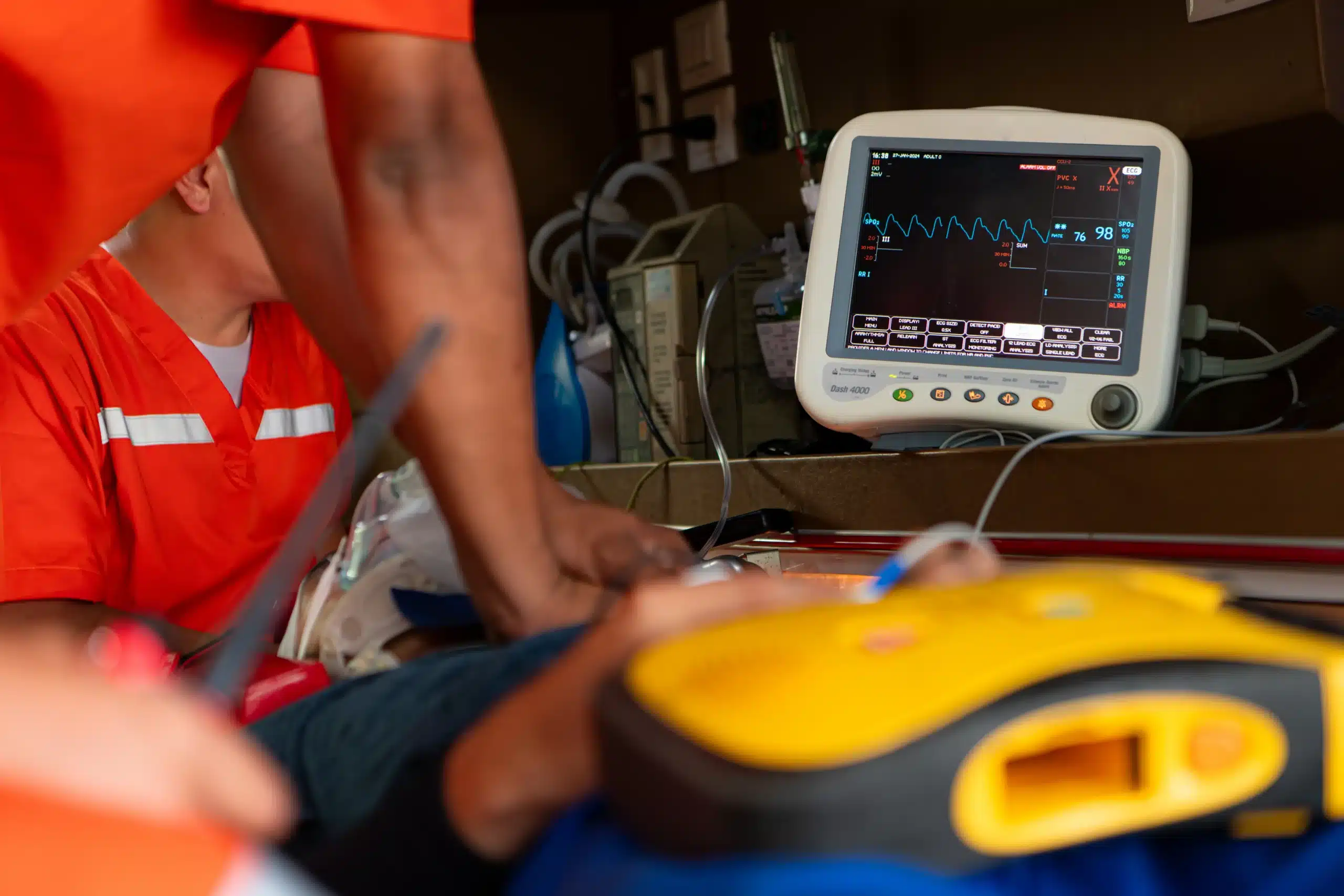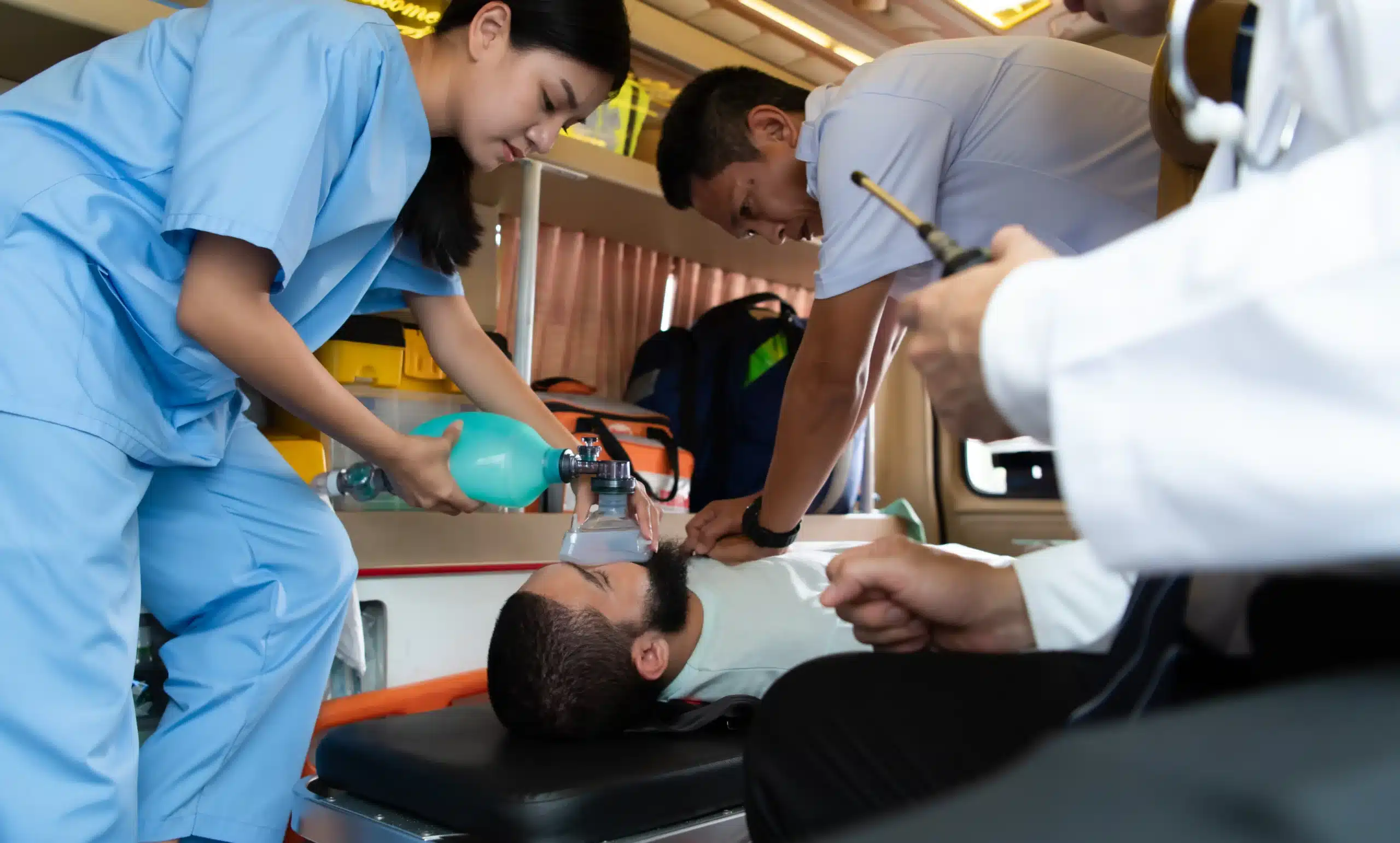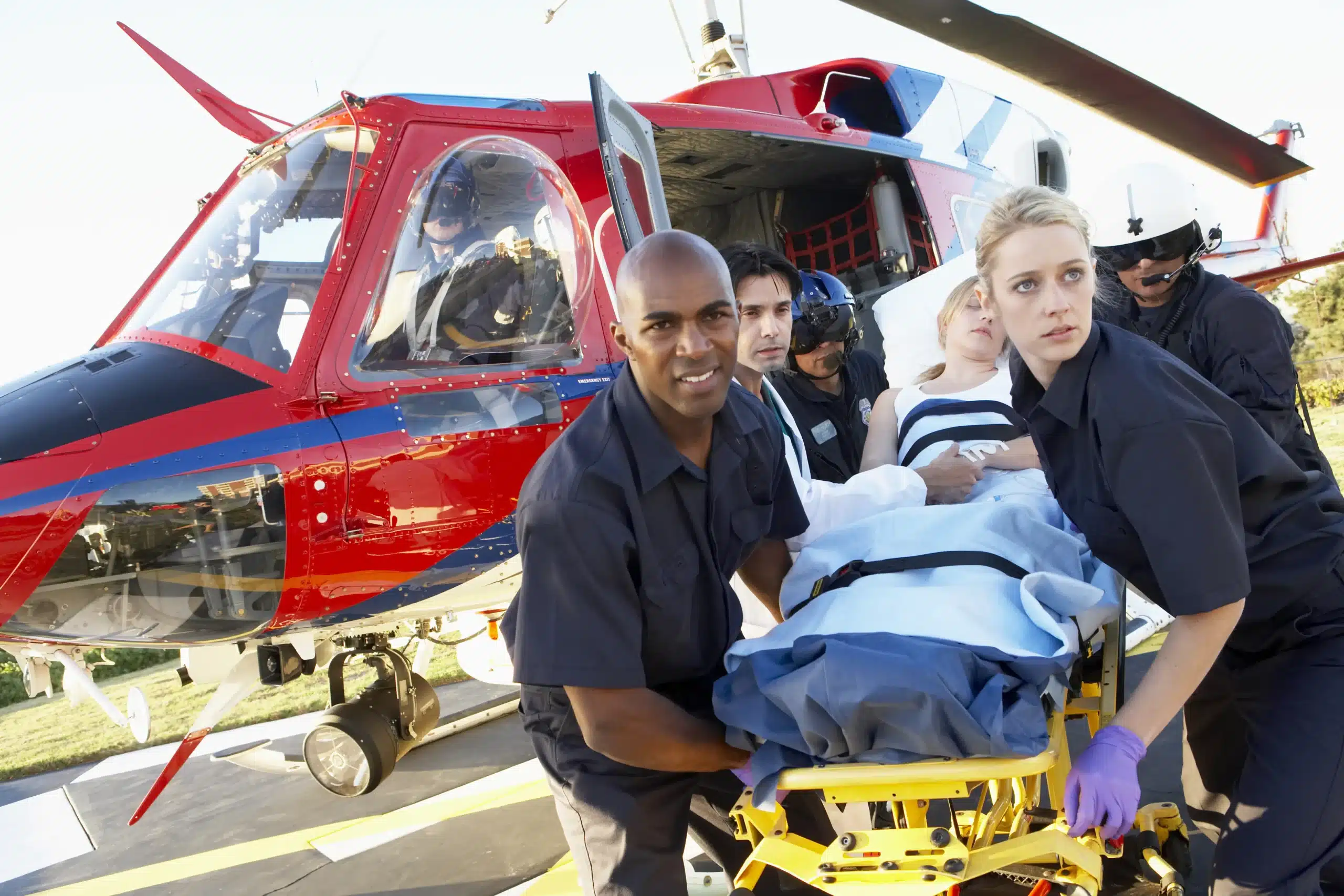Emergencies happen, and being equipped with the right skills can make a world of difference. First-aid training provides the knowledge and confidence to respond effectively in medical situations, from everyday mishaps to more serious events. This guide focuses on first-aid in Roseville, offering a comprehensive overview of the training options available. We’ll explore the different types of courses, including CPR, BLS, ACLS, and PALS, and explain the certification process. We’ll also discuss the importance of hands-on practice and how to find qualified instructors in Roseville. Whether you’re a healthcare professional, a parent, or simply someone who wants to be prepared, this guide will help you find the right first-aid training to meet your needs.
Key Takeaways
- First-aid training prepares you for a range of situations: Equipping yourself with first-aid skills means you can handle anything from minor cuts and burns to more serious medical emergencies, giving you the confidence to act when needed.
- Select the right course based on your goals: Whether you need CPR certification for your job, want to be prepared for family emergencies, or are pursuing a healthcare career, understanding the different course types (CPR, BLS, ACLS, PALS, etc.) helps you choose the best fit.
- Maintain your skills for long-term preparedness: First-aid training is an ongoing commitment. Regularly practicing your skills and staying up-to-date with the latest guidelines ensures you’re always ready to respond effectively.
What is First-Aid Training in Roseville?
First-aid training gives you the skills to handle medical emergencies. It covers a wide range of techniques, from the basics of CPR to more advanced certifications like ACLS (Advanced Cardiovascular Life Support) and PALS (Pediatric Advanced Life Support). These courses are designed for people with little or no medical background who need first aid and CPR/AED certification to meet job requirements or other requirements. Think of it as a toolkit for everyday emergencies—everything from minor cuts and burns to more serious situations where you need to control bleeding or use an AED. These skills can make a real difference in those critical moments before professional help arrives. Whether you’re a parent, teacher, coach, or just someone who wants to be prepared, first-aid training empowers you to confidently respond to unexpected medical situations. First-aid training is an investment in your own safety and the well-being of those around you. It’s about having the knowledge and confidence to act quickly and effectively when it matters most.
First-Aid Course Types
Knowing which first-aid course meets your needs can feel overwhelming with so many options. This section breaks down the most common types, from basic CPR to advanced life support. We’ll cover everything from CPR and BLS to specialized courses like ACLS and PALS.
CPR and BLS
CPR (Cardiopulmonary Resuscitation) and BLS (Basic Life Support) are often used interchangeably. These courses teach you how to respond to life-threatening emergencies like heart attacks and strokes. You’ll learn chest compressions, rescue breaths, and how to use an AED (Automated External Defibrillator). BLS certification is often a job requirement for healthcare providers and other professionals. Rocklin CPR Classes offers American Heart Association BLS certification, ensuring you receive training that meets industry standards.
ACLS
ACLS (Advanced Cardiovascular Life Support) training is designed for healthcare professionals who manage cardiovascular emergencies. This advanced training covers complex situations, including cardiac arrest, stroke, and acute coronary syndromes. Participants learn advanced airway management, rhythm recognition, and pharmacology related to these critical conditions. Learn more about the ACLS courses offered by Rocklin CPR Classes.
PALS
PALS (Pediatric Advanced Life Support) focuses on the specialized care of critically ill infants and children. This course teaches healthcare providers how to recognize and manage respiratory distress, shock, and other pediatric emergencies. Effective teamwork and communication are also key components of PALS training. Rocklin CPR Classes provides comprehensive PALS certification.
Standard First Aid
Standard First Aid courses provide a broader range of skills than CPR or BLS. These courses cover common injuries like cuts, burns, fractures, and sprains. You’ll also learn how to manage medical emergencies like allergic reactions and seizures. Standard First Aid certification is often a workplace requirement and valuable for anyone wanting to be prepared.
Emergency First Aid
Emergency First Aid courses offer a shorter, more focused approach to first aid. These courses typically cover essential life-saving skills, including CPR, choking relief, and controlling bleeding. While not as comprehensive as Standard First Aid, Emergency First Aid provides a solid foundation for responding to immediate threats.
Choose the Right First-Aid Course
Choosing the right first-aid course depends on your specific needs and goals. Whether you’re a healthcare professional, a childcare provider, or simply want to be prepared for emergencies, understanding the different types of courses available will help you make an informed decision.
Assess Your Needs
Before searching for a first-aid course, consider why you want the training. Are you required to have certification for your job? Are you a parent wanting to feel more confident handling everyday mishaps? Or are you interested in a healthcare career? Identifying your needs will guide you toward the appropriate level and type of training. For instance, healthcare providers often require certifications like Basic Life Support (BLS), Advanced Cardiovascular Life Support (ACLS), and Pediatric Advanced Life Support (PALS). A standard first-aid and CPR course might be sufficient if you’re looking for more general knowledge. Roseville offers various CPR and first-aid courses to meet different needs, from basic to advanced certifications.
Compare Course Content and Duration
Once you know the type of course you need, compare the content and duration of different programs. Some courses focus solely on CPR, while others incorporate first-aid training for various situations, such as burns, cuts, and allergic reactions. Look for a course covering the skills you want to learn. Also, consider the time commitment. Some courses can be completed in a single day, while others require multiple sessions. Flexible scheduling can make it easier to fit training into a busy schedule. Safety Training Seminars, for example, offers classes from 8 am to 10 pm.
Check Certification Requirements
Not all first-aid certifications are the same. Different organizations, such as the American Heart Association and the Red Cross, offer their own certifications. Check if your workplace or profession requires a specific one. Also, be aware of the certification’s validity period. CPR certifications are typically valid for two years, and staying current with the latest guidelines and techniques is important. Regular practice and renewal courses can help maintain your skills and ensure you’re prepared to respond effectively in an emergency. Even if your certification is still valid, remember that skills can decline after the initial training, so ongoing practice is essential. Safety Training Seminars offers various American Heart Association certifications, including CPR, BLS, ACLS, PALS, and First-Aid.
First-Aid Training Costs
Understanding the cost of first-aid training is an important step in choosing the right course. Prices vary based on several factors, so it’s helpful to know what to expect.
Course Prices
First-aid course fees in Roseville depend on the type of certification, the course format (online, in-person, or blended), and the training provider. For example, a basic first-aid course without CPR might cost around $40, while a more advanced course like BLS for Healthcare Providers could be around $55. Specialized courses, such as Bloodborne Pathogens training, might have a separate fee, potentially around $25. Remember that these are estimates, and actual prices will vary. Check with the specific training provider for their current pricing. For a better understanding of local pricing, explore options like CPR courses in Roseville.
Included in Fees
When comparing prices, understand what the course fee includes. Many courses cover instruction, materials, and the certification card. Some providers might include extras like practice equipment or access to online resources. For healthcare professionals, programs like the American Heart Association RQI program often bundle BLS, ACLS, and PALS certifications, offering a cost-effective way to maintain these credentials. Clarifying what’s included upfront helps you avoid surprises.
Discounts and Offers
Many training providers offer discounts for groups, students, or returning customers. Some organizations, like Safety Training Seminars, might advertise a low-price guarantee. Ask about potential discounts or on-site group training at your workplace. This can be a convenient and affordable option, especially for larger groups.
Look for Qualifications and Accreditations
Finding the right first-aid training involves more than just picking a convenient location. It’s crucial to ensure the course, instructors, and the certifying organization meet specific standards. This validates your training and equips you with the most current, evidence-based practices.
Instructor Certifications
Qualified instructors are essential for effective first-aid training. Look for instructors certified by reputable organizations like the American Heart Association (AHA). These certifications demonstrate that the instructor has completed the necessary training and has the skills to teach life-saving techniques. For example, Safety Training Seminars is a woman-owned AHA Training Center, showing their commitment to qualified instruction. This means you’ll learn from experienced professionals who can answer your questions and guide you.
Course Accreditations
The courses themselves should also be accredited by recognized organizations. The AHA offers a widely accepted standard for CPR, BLS, ACLS, PALS, and First Aid courses. Choosing an AHA-certified course, like those offered by Safety Training Seminars, ensures the curriculum follows the latest medical guidelines. This is key for receiving high-quality, industry-standard training. The AHA’s RQI program offers a streamlined way for healthcare professionals to maintain these certifications.
Why Choose Recognized Certifications?
Recognized certifications, like those from the AHA or Red Cross, offer several advantages. These certifications are widely accepted and often required for certain jobs or volunteer opportunities. They also show a commitment to maintaining current knowledge and skills. CPR certifications typically last two years, and skills can decline quickly. A program that emphasizes ongoing learning, such as the RQI program, helps you stay sharp and confident. Credible certifications also provide peace of mind, knowing your training meets established standards and prepares you to respond effectively. Safety Training Seminars offers various courses to meet different needs. Investing in a recognized certification is an investment in your ability to provide competent care when it matters most.
Where to Find Training in Roseville
Finding the right first-aid training program in Roseville depends on your specific needs and preferences. Here are a few options to explore:
Rocklin CPR Classes
Rocklin CPR Classes offers a comprehensive selection of American Heart Association (AHA) courses, including BLS, ACLS, and PALS. They serve Rocklin, Roseville, and Sacramento, making them a convenient option for those in the area. Check their website for course schedules and more information about their offerings. They also offer discounted group classes.
American Red Cross
The American Red Cross is a well-known provider of CPR and first-aid training in Roseville. Their courses meet OSHA guidelines and are suitable for various needs, from workplace requirements to personal preparedness.
Safety Training Seminars
Safety Training Seminars provides a range of CPR and first-aid courses in Roseville, from basic CPR to advanced certifications like BLS, ACLS, and PALS. They also offer specialized training such as the EMSA Child Care Health and Safety course, essential for childcare providers in California.
Rescue Training Institute
Rescue Training Institute offers a flexible approach to training with on-site and off-site options. Their mobile training can be delivered directly to your workplace in the Roseville area, a convenient choice for businesses and groups.
NorCal Emergency Medical Training
NorCal Emergency Medical Training is an AHA Certified Training Center offering BLS, ACLS, PALS, NRP, and Community/Public CPR with Basic First Aid. They provide a variety of class times and flexible scheduling to accommodate different schedules.
Local Community Centers and Fire Departments
Often, local community centers and fire departments offer CPR and first-aid training courses. Check with the Roseville Fire Department or your local community center for information on available courses, schedules, and pricing. Contacting the Roseville Fire Department directly or checking their website is a good starting point. These options can be a cost-effective way to gain essential lifesaving skills.
Practice Hands-On Skills
Hands-on practice is the cornerstone of effective first-aid training. It bridges the gap between theory and real-world application, empowering you to respond confidently in emergencies.
Simulated Scenarios
Simulated scenarios recreate real-life emergencies, allowing you to apply your skills in a safe environment. These scenarios might involve treating a simulated injury, performing CPR on a manikin, or working through a mock disaster. Safety Training Seminars in Roseville offers various courses, including training relevant to childcare providers. Practicing in simulated environments helps you develop critical thinking and problem-solving skills, and builds your ability to stay calm under pressure.
Equipment Familiarization
Becoming comfortable with first-aid equipment is crucial. This includes everything from bandages and splints to automated external defibrillators (AEDs). Hands-on training provides the opportunity to familiarize yourself with these tools and learn how to use them correctly. Some providers, like the Rescue Training Institute in Roseville, also sell first-aid equipment.
Build Confidence Through Practice
Repeated practice builds muscle memory and reinforces the skills you learn. The more you practice, the more confident you’ll become in your ability to respond effectively during a real emergency. This confidence can be life-saving, enabling you to act quickly when every second counts. NorCal Emergency Medical Training emphasizes providing students with both the knowledge and the confidence to help when needed. Through hands-on training, you gain the practical experience to make a real difference.
Maintain Your Certification
Earning your first-aid certification is a great accomplishment, but staying current is essential. Knowing how to perform CPR and other life-saving techniques can make all the difference in an emergency. Regularly refreshing your skills ensures you’re always prepared to act quickly and confidently when needed.
Renewal Requirements
CPR certifications are typically valid for two years. Renew your certification before it expires to maintain your qualifications. Even if you feel confident in your abilities, remember that skills can fade over time. The Red Cross Scientific Advisory Council points out that skills can begin to decline within months of initial training. A refresher course reinforces best practices and covers any updated guidelines. At Rocklin CPR Classes, we offer convenient renewal courses to help you stay certified. Contact us to learn more about our renewal options.
Continuing Education
Look for opportunities to expand your skillset with continuing education courses. This is especially relevant for healthcare professionals or those working in high-risk environments. Consider advanced certifications like BLS, ACLS, and PALS to build upon your foundational first-aid knowledge. These advanced courses provide the skills to handle more complex medical emergencies. We offer a range of advanced courses at Rocklin CPR Classes, so check our website for more details.
Stay Updated on Guidelines
Emergency care guidelines change periodically to reflect new research and best practices. Staying informed on these updates is crucial for providing effective and safe care. High-quality CPR training programs, like those offered at Rocklin CPR Classes, incorporate the latest American Heart Association guidelines. These guidelines cover essential information, from recognizing cardiac arrest to correctly using an AED. Staying current ensures you’re always prepared to provide the best possible care. We encourage you to explore our discount group classes to keep your skills sharp and your knowledge up-to-date.
Prepare for Your First-Aid Course
Getting ready for your first-aid course involves a little bit of prep work. Knowing what to expect and showing up prepared helps you focus on learning these lifesaving skills. First-aid courses typically run about four to five hours and end with you receiving your two-year certification.
What to Bring
While your first-aid course will cover everything you need to know, having a notebook and pen can be helpful for jotting down key takeaways or any questions that arise. Some students find it beneficial to bring a small bag or backpack to keep their belongings organized.
Pre-Course Materials
Many providers offer pre-course materials or study guides. Check with Rocklin CPR Classes to see what resources they have available. Reviewing these materials can give you a head start and make it easier to absorb the information presented during the course. Even a quick overview of basic first aid can boost your confidence.
Dress Code and Physical Requirements
First-aid and CPR training is hands-on. You’ll be practicing techniques like CPR and bandaging, so wear comfortable clothes that allow you to move freely. Think athletic wear or comfortable casual attire. Closed-toe shoes are usually recommended for safety during the practical exercises. If you have any physical limitations, it’s always a good idea to discuss them with your instructor beforehand so they can offer modifications or support.
Find and Evaluate Training Providers
Finding the right first-aid training provider requires a bit of research. Beyond basic course information, consider a program’s quality and how well it suits your learning style. Here’s how to evaluate your options:
Online Reviews
Start by reading online reviews of first-aid training providers in Roseville. Sites like Yelp, Google Reviews, and Facebook offer insights from past students. Pay attention to comments about the instructors, the course format, and the overall experience. For example, positive reviews for Safety Training Seminars frequently mention the quality of their American Heart Association courses, including BLS, ACLS, and CPR training. These reviews can help you understand a program’s strengths and weaknesses.
Provider Websites
Once you’ve identified a few potential providers, visit their websites. A provider’s website should clearly outline the courses offered, certifications provided, and instructors’ qualifications. Safety Training Seminars, for instance, is a woman-owned AHA Training Center specializing in high-quality training. Their site details their CPR and first-aid courses, making it easy to determine if they meet your needs. Look for clear, accessible information about course content, schedules, and costs.
Word-of-Mouth
Don’t underestimate personal recommendations. Ask friends, family, and colleagues about their first-aid training experiences. Roseville CPR Classes, for example, is often praised for its accessible training and flexible scheduling. As an AHA Training Center affiliate, they offer various certifications, including CPR and first-aid. A direct referral can offer valuable firsthand perspective.
Compare Course Formats
First-aid courses are available in various formats, including online, in-person, and blended learning. Consider your learning style and schedule when choosing a format. Also, compare pricing across different providers and formats. The American Heart Association’s RQI program, for example, offers a flexible and efficient path to BLS, ACLS, and PALS certification, which is especially helpful for healthcare professionals. Think about the learning environment you prefer and how much interaction you want.
Related Articles
- CPR Training in Roseville: Your Complete Guide – Rocklin CPR Classes
- First-Aid Training in Sacramento: Your Complete Guide – Rocklin CPR Classes
- ACLS Certification in Roseville: Your Complete Guide – Rocklin CPR Classes
- BLS Classes in Sacramento: Your Complete Guide – Rocklin CPR Classes
- PALS (Pediatric Advanced Life Support) Course in Rocklin – Rocklin CPR Classes
Frequently Asked Questions
What’s the difference between CPR and First Aid?
CPR focuses specifically on life-threatening breathing and cardiac emergencies. It teaches you how to perform chest compressions, rescue breaths, and use an AED. First Aid training is broader, covering a wider range of injuries and illnesses, from minor cuts and burns to more serious situations like choking or allergic reactions. Often, you’ll find courses that combine both CPR and First Aid.
How do I choose the right First Aid course for me?
Think about why you need the training. Is it for a job, personal knowledge, or something else? This helps determine the right level. If you’re unsure, a basic First Aid and CPR course is a great starting point. For healthcare providers, more advanced certifications like BLS, ACLS, and PALS are usually necessary.
How much does First Aid training cost?
Costs vary depending on the course type, location, and training provider. Basic courses tend to be more affordable than advanced certifications. Look for providers offering discounts for groups or check with your employer about potential coverage.
How long does a First Aid certification last, and how do I renew it?
Most First Aid certifications, including CPR, are valid for two years. You’ll need to take a recertification course to stay current. Check with your certifying organization or training provider for specific renewal requirements.
What if I have physical limitations? Can I still take a First Aid course?
Absolutely! Talk to your chosen training provider about any physical limitations you have. They can often adapt the training to make it accessible for everyone. A good instructor will work with you to ensure you can participate fully and safely.
